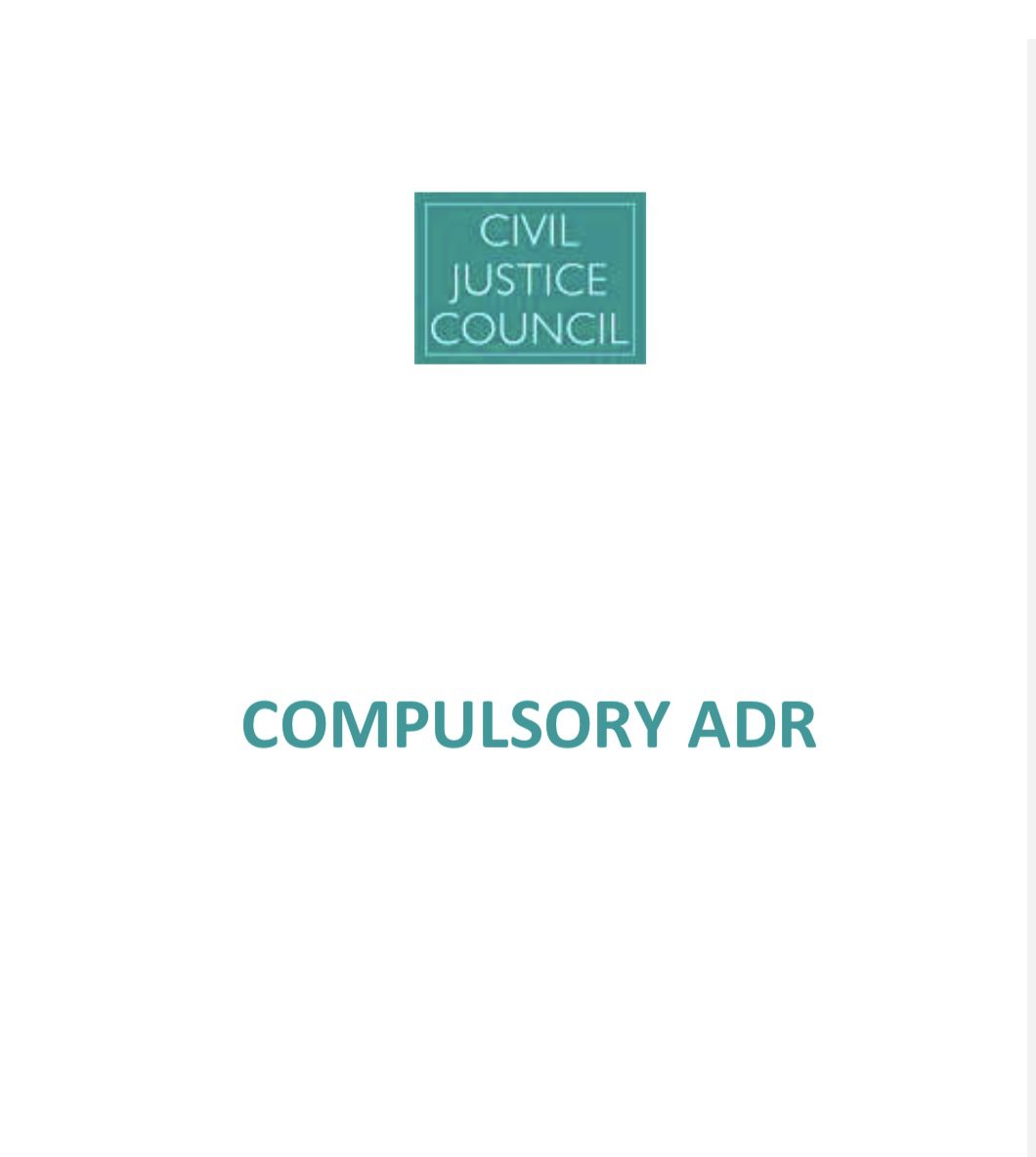The Civil Justice Council has today published a paper suggesting that parties could be compelled to mediate.
This has been a long running debate, with people arguing that forcing people to mediate is a step too far.
in the paper it is suggested that making parties mediate does not breach their human right to a fair trial. It says that:
“ADR can no longer be treated as external, separate or indeed alternative to the court process. For our part, an order that is made requiring participation in ADR should be enforced and parties who fail to attend in breach of such an order should be sanctioned.“
The authors dismiss the argument that parties forced to use ADR will not resolve their dispute.
“Drawing together the strands, this commentary points to a number of potential concerns about the introduction of compulsory ADR. First, there is a risk it might not work, either because the parties are simply intransigent or because they do not know enough about it, and are therefore unlikely to engage in the process. Second, at a more fundamental level, there is a concern that pushing more disputes into ADR undermines the value of the adjudicative system, which is the foundation on which the effectiveness any form of ADR ultimately relies. In our view, these concerns are not decisive.”
They go on to conclude that compulsory mediation/ADR should be considered and that it would be an extremely positive development, particularly when it is low cost, saying that:
“We think that introducing further compulsory elements of ADR will be both legal and potentially an extremely positive development. We will not make detailed proposals for reform as these require a wider perspective than is possible here. But applying the principles we have tried to develop in Section IV we would make three specific observations:
1) Where participation in ADR occasions no expense of time or money by the parties (as with answering questions in an online process as to a party’s willingness to compromise) it is very unlikely that the compulsory nature of the system will be controversial – as long as the ADR is otherwise useful and potentially productive.
2) Judicial involvement in ENE, FDR and DRH hearings is proving highly effective and these are of course available free to the parties. Again as long as those procedures seem appropriate for the particular type of case being considered and can be resourced within the court system, we cannot see that compulsion in an even wider range of cases will be unacceptable.
3) We think that as mediation becomes better regulated, more familiar and continues to be made available in shorter, cheaper formats we see no reason for compulsion not be considered in this context also. The free or low-cost introductory stage seems the least likely to be controversial.
Above all, as long as all of these techniques leave the parties free to return to the court if they wish to seek adjudicative justice (as at present they do) then we think that the greater use of compulsion is justified and should be considered.“
The report seems to suggest that the starting pint should be forms of ADR which are free or low cost. It is certainly our experience having been conducting a free trial of our consumer ADR process, funded by the EU, we see a positive uptake when mediation or ADR is free, but some resistance when it is not. What the report fails to mention is that in high value cases parties could be expected to pay when they are already paying large amounts for lawyers and also paying Court fees. I find it disappointing that for some reason the skills of a mediator are undervalued and people think that paid for mediation should not be required.

